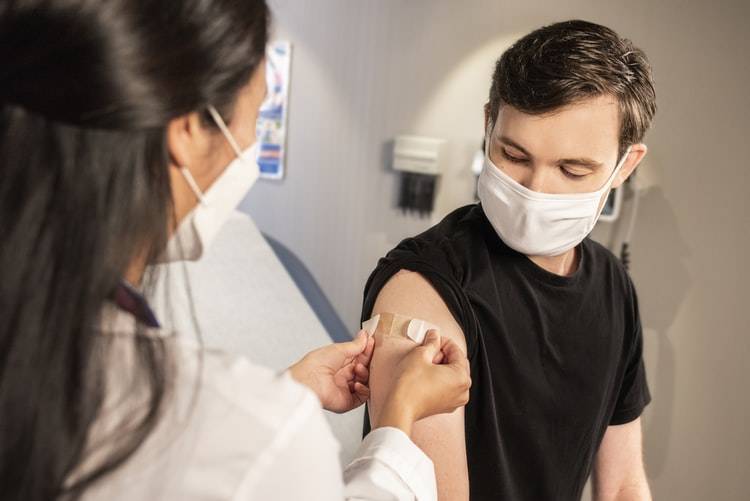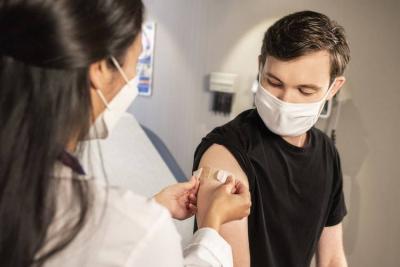Under the title "Patent Waiver for Vaccines: Laboratories Fear a Precedent," the Swiss Info website published a news piece quoting the French Press Agency, indicating that the idea of waiving patents for COVID-19 vaccines is generally rejected by pharmaceutical companies. Even if their profits are not currently threatened, these companies fear that such a proposal could set a precedent that hinders innovation.
**No Immediate Effects on Laboratories**
Pharmaceutical companies assert that patent protection is not the obstacle to vaccine production. Michelle McCourry-Hith, director of the biotechnology lobbying group, stated, "Giving developing countries formulas without the ingredients, guarantees, and specialized labor will not help those waiting for the vaccine." On Thursday, Stéphane Bancel, CEO of Moderna, announced that mastering the mRNA technology behind the Pfizer-BioNTech and Moderna vaccines, purchasing machinery, conducting clinical trials, and starting mass production "does not happen in 6, 12, or 18 months." His company pledged in October not to sue other companies that may use its patents to produce COVID-19 vaccines.
Production is also hampered by customs obstacles or shortages of certain components. For companies that currently benefit from the vaccine—Johnson & Johnson and AstraZeneca have committed to selling it at cost—waiving patents will "especially in the coming months" not affect them, according to Ian Gendler from the research firm Value Line. Could the proposal positively impact the reputation of laboratories, which are often criticized for high drug prices? It is uncertain, according to Farsat Bukhari, an economist specializing in competition and health issues at the University of East Anglia in the UK. "At this stage, it will be under government pressure, and these companies will appear uncooperative."
**A Slippery Slope**
Ron Cohen, CEO of Akorn Therapeutics in New York, believes that by supporting a temporary patent waiver, "Joe Biden has taken a dangerous and slippery slope." He tweeted, "What are the next patents on the list that will not be protected after this precedent is set?" He emphasized that diseases like cancer or Alzheimer's could also be deemed "global crises." Experts confirmed to AFP that the current intellectual property system is not fundamentally threatened. However, waiving the patent for the COVID-19 vaccine "sets a precedent for future health crises," according to Bukhari. Drug companies, whether publicly funded or not, "will have no incentive to invest the next time there is an emergency."
**Public-Private Partnerships?**
Damian Kunofer, a pharmaceutical industry expert at Morningstar, considers the support for waiving patents on COVID-19 vaccines to be undoubtedly a "theoretical issue" for the Biden administration. The United States, which typically defends intellectual property rights, faces pressure from developing countries denouncing the slow global vaccine distribution, as 45% of Americans have received at least one dose. Bukhari notes this injustice "remains unresolved." He states, "For example, we need to identify where the bottlenecks in production are."
In his view, the U.S. government could primarily assist in establishing licensing agreements between drug companies and manufacturers in developing countries that include the transfer of expertise. Intellectual property specialist Shyam Balganesh from Columbia University in New York calls for unifying all information related to the COVID-19 pandemic, which will not disappear soon. He points out that corporate reluctance does not match the aid provided by governments that funded part of the research, facilitated regulatory or logistical processes, and the fact that the situation is exceptional.
He adds, "Whether it concerns pharmaceutical companies saying that opening this door is fraught with unknown outcomes or public health advocates welcoming this development, it is essential to acknowledge that we do not know the text that will be adopted." Is there an intention to waive patents for vaccines for years or even to reach herd immunity? Is there also an intention to include treatments? "There are still many points that need negotiation."




